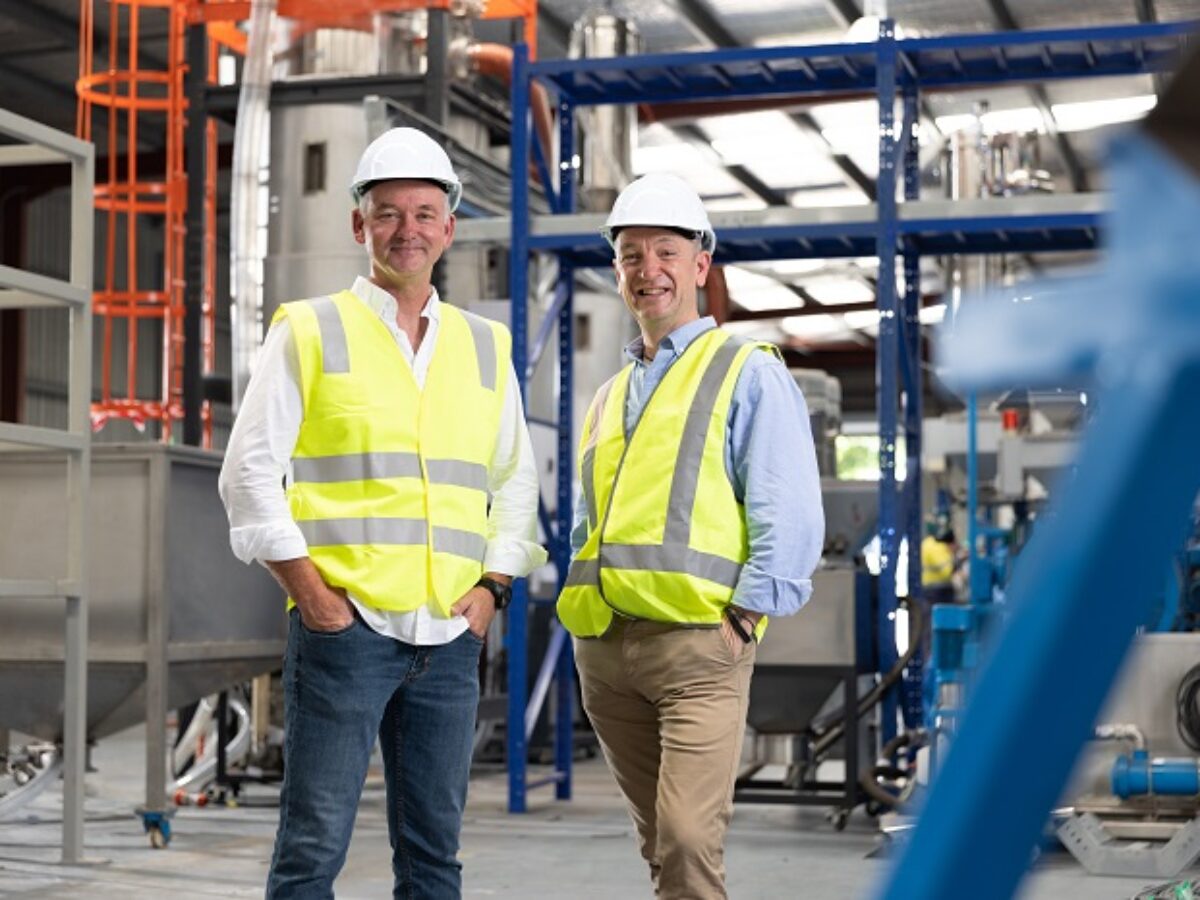Australian company offers the world a S.O.F.T. option for problem textiles

The next stop on our Australia’s 50 Most Innovative Manufacturers quest is at another exciting young recycling enterprise with a world-first method addressing an enduring issue. Brent Balinski speaks to BlockTexx co-founder Graham Ross.
Sometimes a lack of local ambition – as well as lack of larger-sized companies – gets cited as an obstacle to Australian companies contributing new technologies and economic diversification.
In December, Industry Innovation and Science Australia research reminded us about the small number of medium-sized companies — a “missing middle” — with “scaling of innovation and realisation of commercial benefits either fail[ing] or… taken offshore” as a result. It also estimated that between just 5 and 15 per cent of Australian SME business leaders wanted to grow their firm into a multinational; the rest operated “lifestyle businesses”.
There are, of course, counterpoints in manufacturing and elsewhere, displaying the risk tolerance necessary to for international leadership in a difficult emerging industry.
BlockTexx is one such example.
In 2022 they opened what was reportedly the world’s first commercial-scale recycling facility for polyester and cotton blends, taking on one of the major challenges in an already majorly-challenging sector to operate in: textile recycling.
“Textile recycling is, from a chemical separation point of view, incredibly new,” Graham Ross, who co-founded the company in 2018 with Adrian Jones, tells @AuManufacturing.
“We’re one of the leading companies in the world and there’s only a handful of us who are sort of at pilot scale or just got out of labs.”
Do you think you belong on @AuManufacturing’s list of Australia’s 50 Most Innovative Manufacturers? Apply to be recognised in this exclusive group here.
When we speak to Ross in late-January, he is upbeat. The company is on track to shortly scale up capacity from 4,000 tonnes to 10,000 tonnes per annum at what Ross describes as a “small or an early-stage commercial scale plant” at Loganholme, south of Brisbane.
“Which is still quite small, but is still massive in the scale of where we are in the early stage,” he adds.
BlockTexx’s chemical separation method – SOFT, or Separation of Fibre Technology – was developed with Queensland University of Technology and CSIRO scientists.
According to the company it is able to recover about 95 per cent of blended polyester-cotton, turning this into plastic flakes (which are pelletised as recycled PET) and cellulose, which has uses ranging from building materials to hydromulch for site revegetation.
As the composites industry has learned, while blending two or more materials provides physical improvements, it creates problems if you want to recycle something at the end of its life.
An estimated half of all textiles are poly-cotton blends.
 The Australian Fashion Council estimates textile waste is a 210,000-tonne per annum issue in Australia. Globally, one estimate is that textile waste will reach 140 million tpa by the decade’s end.
The Australian Fashion Council estimates textile waste is a 210,000-tonne per annum issue in Australia. Globally, one estimate is that textile waste will reach 140 million tpa by the decade’s end.
Ross says that current textile recycling capacity can only address a small chunk of the problem. He estimates chemical recycling – currently at its Model T Ford stage – will achieve the ubiquity of plastic recycling in about a decade or a half.
BlockTexx’s business is not just about remanufacturing.
In five-and-a-half years it has grown a supplier network to more than 200 across Australia, mainly in the commercial sector (including hotels, hospitals and workwear), runs a nation-wide collection service with a logistics partner, and a decommissioning network in four states with the national disability service.
“And think of any major brand that you can mention, we’re either working with them or they’re scheduled to work with us,” he adds of the supplier side.
Since the beginning, Ross and Jones have aimed to expand internationally, when the time is right, through a licensing model.
So while there is an identified abundance of companies in Australia unconcerned with growing beyond our borders or developing new-to-the-world answers to thorny problems, that doesn’t go for everyone.
According to Ross, it’s only real innovation if you’re changing society for the better.
“My personal idea of innovation is something that benefits society. It’s an innovation that changes the direction of society in a positive way for the future. It’s one where other actors can get involved, they can build things from, or into, or supporting of,” he says, citing the shifts delivered to lives, commerce and more through the iPhone.
“So for me those kinds of innovations [matter], not innovations that don’t actually provide any evolution of the industry. If it’s just an innovation to keep business as usual controlled, that to me is not innovation; that’s just a business strategy.”
In this episode of @AuManufacturing Conversations, Ross tells us about a passion for marathons and triathlons brought him to sustainability in textiles, why recycling is a great way to go broke if you don’t do it right, what needs to change to improve the way industry and researchers work together, and more.
Main picture: Ross and Jones (supplied)
Episode guide
0:56 – How they got started and what they do: chemical separation allowing them to take polyester and cotton apart.
3:45 – SOFT and how it works.
6:10 – Recovery rates and not creating another waste stream.
8:44 – Making a viable business within recycling is a challenge. Here’s how they approached it.
11:10 – The two products they can create from mixed fabrics. Plus downstream products like hydro-mulch and building materials.
13:30 – We need more recyclers, and more recyclers working together.
15:30 – Planning to expand via a licensing model and why it makes sense.
17:36 – Innovation is hard, especially so in manufacturing.
20:45 – Something that benefits society, changing its direction in a positive way.
22:38 – How they approached collaborating with QUT, CSIRO and others, why it mattered, and how you can get business and researchers to cooperate more effectively.
24:20 – Potential and unnecessary arguments over IP when a technology is nowhere near being commercial, and how to avoid them.
26:43 – Innovation should be a business mandate, not a “nice to have”.
Australia’s 50 Most Innovative Manufacturers is an annual campaign by @AuManufacturing. It has been made possible through the generous support of MYOB, CSIRO, the NSW government’s Advanced Manufacturing Research Facility, and the Commonwealth Bank. Be sure to check back at this website for regular updates, including profiles of nominees and other information.
 Further reading
Further reading
Manufacturing news briefs – stories you might have missed
Brands are leaning on ‘recycled’ clothes to meet sustainability goals. How are they made? And why is recycling them further so hard?
Winning scaleup businesses named at Australian Technologies Competition 2021
Companies awarded $8.4 m in commercialisation grants
Logan to investigate new innovation precinct
Rediscovering our ability to spin a yarn
@aumanufacturing Sections
Analysis and Commentary Awards casino reviews Defence Gambling Manufacturing News Online Casino Podcast Technology Videos





